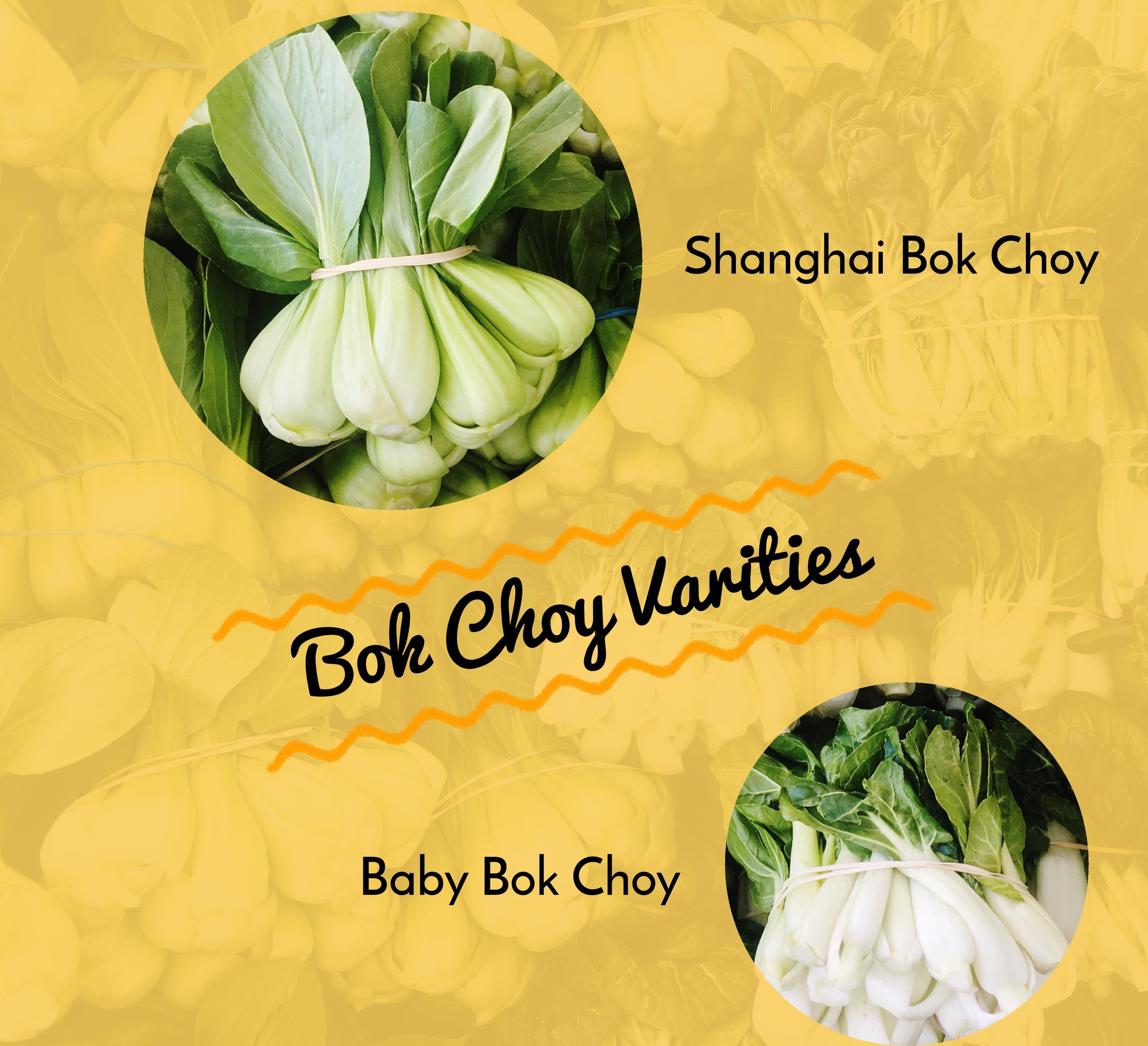Bok Choy: The Better CHOY-ce
What is Bok Choy?
Bok choy (BAHK-choy) is a type of Chinese cabbage. Bok Choy is a leafy green vegetable that is a brassica, in the cabbage/mustard tribe. It has a sweet and mild taste, with barely-discernible peppery taste. Though they are a winter-hardy vegetable, they grow best in spring and fall. It is a staple vegetable in Chinese cuisine, but you can also find it in many other cultural cuisines including, Filipino, Korean, and Thai communities.
You can find two main types of bok choy, Shanghai Bok Choy and Baby Bok Choy. Baby Bok Choy has white stalks and dark green, crinkly leaves with a more mineral taste. Shanghai Bok Choy has wide, jade-colored stalks shaped like soupspoons and light green smooth leaves with a more mild, celery-like flavor. Both can be used interchangeably. Bok Choy makes great substitutes for cabbage, spinach, and celery, just to name a few. So try adding them into your dishes!
According to the Center’s for Disease Control and Prevention’s (CDC) peer-reviewed Prevent Chronic Disease Journal published study called, “2014 Defining Powerhouse Fruits and Vegetables: A Nutrient Density Approach”, Bok Choy is the 2nd most nutrient dense produce out of the 47 studied, scoring a 91.99 out of 100. Compared to Spinach, which scored a 86.43 and Kale, which scored a 49.07.
Bok choy is jam packed with nutrients. While low in calories, Bok Choy is high in Vitamin A (104% Recommended Dietary Allowance (RDA)), Vitamin C (35% RDA), and Vitamin K (27% RDA). As you can see from the California Department of Education’s chart on Bok Choy’s Nutritional Values, 1/2 cup of Bok Choy contains 71% of Daily Value for Vitamin A and 36% of Daily Value for Vitamin C while only being 10 calories.
Bok Choy Benefits
Helps Prevent Cancer (from Vitamin A, kaempferol)
Improves Bone Health (from Vitamin A and Vitamin K)
Improves Eye Health (from Vitamin A)
Boots the Immune System (from Vitamin C)
Alleviates Stress (from Vitamin C)
Improves Cognitive Health (from Vitamin K)
Lowers Blood Pressure & Promotes Heart Health (from Vitamin K)
Provides Antioxidants
Traditional Chinese Medicine (TCM) has four uses for food: diet, medicine, tonic, and abstention to maintain a balanced flow of qi, or life energy, through the body. Foods are either cold, hot, or neutral in nature, which is based off the food’s effect on the body internally. Implementing eating habits based on TCM can help prevent illness, thwart pain, and achieve longevity and overall health in the body.
When shopping for Bok Choy, look for firm, smooth stalks and crisp greens. It can be stored in the refrigerator for around 5 days. It’s recommended to shop for locally grown produce. Eating locally grown fresh produce is better for your body. It is the best way to ensure no preservatives, chemicals, or dyes have been added to your food. Since produce loses its nutritional value over time, the quicker it’s eaten, the greater chance of high nutritional retention. Bok Choy can be eaten raw, cooked, or pickled, making it a great and versatile vegetable to add to all your favorite recipes from salads to smoothies to soups!
Stay in tune for some yummy recipes and where to find Bok Choy in local LA Eateries!





